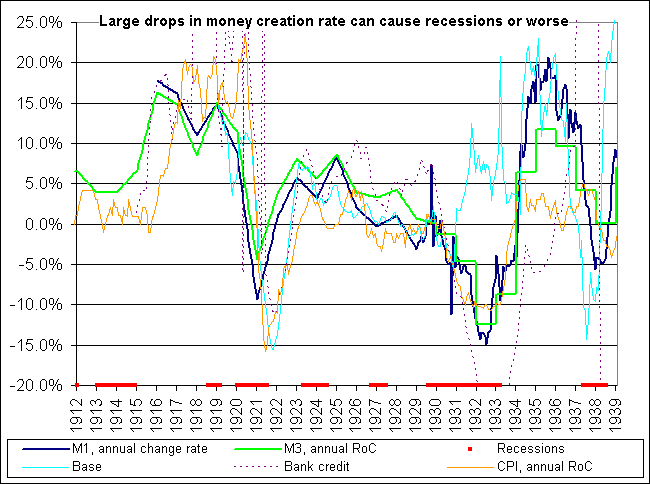http://econ161.berkeley.edu/Politics...dstandard.html
Any gold bugs around? 
- Countries that were not on the gold standard in 1929--or that quickly abandoned the gold standard--by and large escaped the Great Depression
- Countries that abandoned the gold standard in 1930 and 1931 suffered from the Great Depression, but escaped its worst ravages.
- Countries that held to the gold standard through 1933 (like the United States) or 1936 (like France) suffered the worst from the Great Depression


Comment